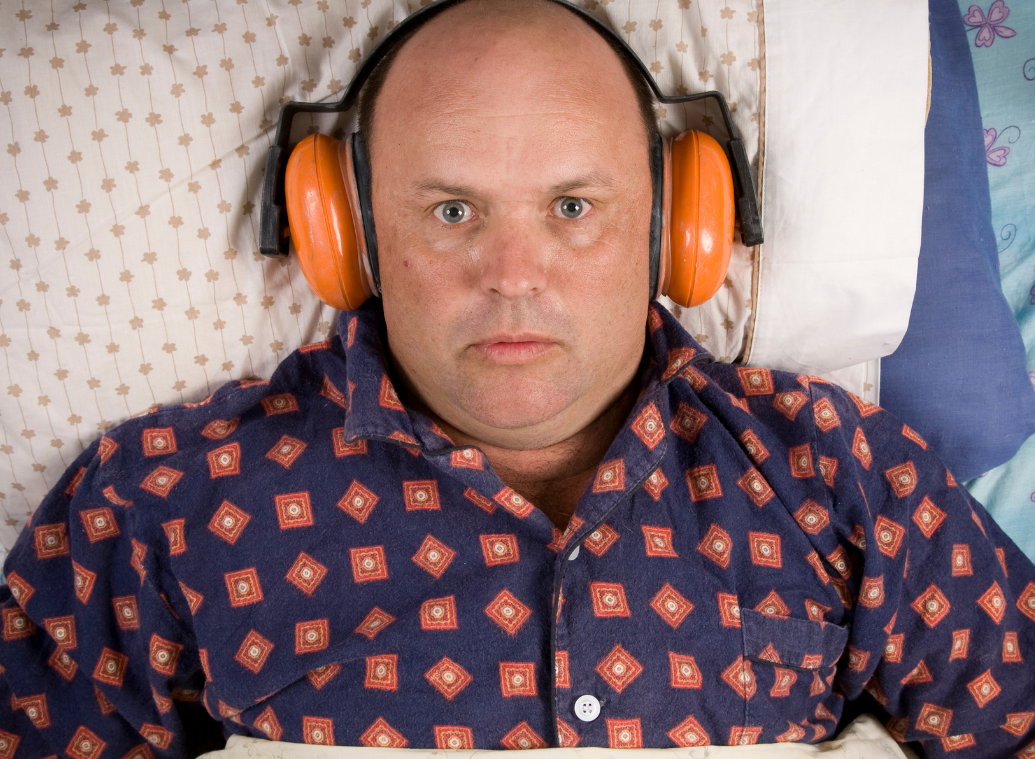- Home
- Forums
- Heart failure Forum
- Living with heart failure
- 9 facts about atrial fibrillation and heart failure
Patients Heart failure
9 facts about atrial fibrillation and heart failure
- 193 views
- 19 times supported
- 25 comments
All comments
Go to the last comment
Unregistered member
An extremely valuable article Margarita.
Thank you for sharing it. Having recently being investigated for Atrial Fibrillation, I found it very informative and useful. It is not confirmed that I have AF but being monitored for it with a ILR Implantable Loop recorder. I am not commenced on any preventative medication yet which is worrying me. I will have a chat with my GP about it to see what she thinks. I hope others find this article as useful as I have found it.
Thank you
nineteen_gale
![]()
GLOJO1
Good advisor
![]()
GLOJO1
Last activity on 03/01/2021 at 11:10
Joined in 2018
35 comments posted | 4 in the Heart failure Forum
Rewards
-
Good Advisor
-
Contributor
-
Explorer
-
Evaluator
-
Friend
-
Newsfeeder
Hi there, 10 years ago my Husband was actually in Theatre for a Haitus hernia operation and the Anaesthetist stopped it from going ahead because of his heartbeat. Anyway they found out that he had Atrial Fibrillation and since then he has been on several different types of heart medications,but he is not under a Cardiologist I get so worried about him sometimes because his lips and the tips of his fingers go blue. He gets so out of Breath. I keep telling him to tell his G.P. about it but he just says, ( Oh I'm OKAY ) , but he's not. We don't have the same Doctors or i would tell them. Do you think that I would be able to get in touch with his Doctors and tell them whats going on. I have Valvular Heart Disease but I have a Cardiologist that I see just once a year, just to keep check on me. I need 2 Heart Valve's to be replaced but they can't find a Surgeon that would be prepared to do the operation. Ive told them that I wouldn't want it done anyway. We all know i wouldn't survive it because of my other health problems. But my Husband is different, he's not getting looked after properly. I Love him so dearly. Weve been married 56 years and i don't want to lose him. He's such a lovely kind Man. Take Care Everyone. Goodnight Godbless. Glojo.

robjmckinney
AmbassadorGood advisor
![]()
robjmckinney
Ambassador
Last activity on 21/12/2025 at 21:13
Joined in 2015
638 comments posted | 6 in the Heart failure Forum
64 of their responses were helpful to members
Rewards
-
Good Advisor
-
Contributor
-
Messenger
-
Committed
-
Explorer
-
Evaluator
Heart failure has dogged my wife's life for many years leading to three heart attacks, medical incompetence and our own ignorance. About a third of people die from their first heart attack and none of the common so called 'signals' applied to my wife. Beyond my wife standing at the sink saying she can't breathe and call an ambulance. At hospital the doctors totally failed diagnosing the heart attack and pursued the wrong direction of breathing issues. Not once but twice after not diagnosing the issue was the heart not lungs even heart specialists failed to identify the heart failure. The third time did finally trigger a better broad investigation to finally understand these were heart attacks brought on by heart failure. I set out to find out what are heart attacks are about, buy suitable equipment to monitor my wife's health and observe closely for signs of any new heart issues. Since then we have avoided any further heart attacks but not events of her ending up in A&E. But each time we learn something new to avoid further A&E visits that allow further misdiagnoses by the medical profession who seem so determined to kill her off, the heart specialists the worst.
See the signature
robjmckinney
![]()
GLOJO1
Good advisor
![]()
GLOJO1
Last activity on 03/01/2021 at 11:10
Joined in 2018
35 comments posted | 4 in the Heart failure Forum
Rewards
-
Good Advisor
-
Contributor
-
Explorer
-
Evaluator
-
Friend
-
Newsfeeder
Oh my God i know just what you mean .Like i said my Husband isn't under a Cardiologist even though he has A.F. and high blood pressure. And he gets so out of Breath and goes a sort of blue around his lips and fingers. I think that he don't want to bother because of what's gone on with me in the past............. .... Many years ago I used to get terrible headaches. My Husband actually got a wide crepe bandage and wrapped it under my chin and across my head. I felt like my head was going to explode. Then my fingernails and under my eyes went blue, that was it. My Husband took me to my G.P and I was rushed to hospital. My blood pressure was 220/12I in hospital they called me a timebomb, they were expecting me to have a stroke. Bear in mind this was many years ago and they were really good, so professional and really looked after me. .... .... How things have changed. Since then I have been rushed to hospital with a suspected heart attack, and when they took my blood my Troponin level was high, so they came back and told me that I'd had a heart attack. Well 12 hours later they took blood again and the Troponin level had come down, so then they wasn't sure. OH MY.. .. .. .. Well anyway,to cut a long story short, we know that I have 2 heart valve's that aren't working properly. They said that they can't find a Surgeon that would do the operation because I wouldn't survive it. I have 1 lung working, Angina and Asthma. 16 months ago I was taken to hospital again but the Cardiologist that I am with wasn't there. The Cardiologist that was there at the time wanted to do an Angiogram. I told him that I'd had an Angiogram several years before and my proper Cardiologist and I had discussed different issues and agreed for me not to have another Angiogram in the GROIN because it wasn't without risk. He said okay we'll be able to do it in your WRIST. So I agreed to that. But the following day when I went down to have the Angiogram a young chap called Dave introduced himself to me and i thought that he was just one of the Male Nurses that got things ready, because he was eating a sausage roll when he introduced himself to me. Anyway when they took me to the room the Procedure was to be done in, the Cardiologist that was supposed to have been doing it wasn't even there.It was this young Man called Dave that did it. He tried 3 times in my Wrist but couldn't do it because he said that my Blood Vessel was Calcified. So then I felt a terrible pain in my groin. Oh the pain was terrible, i was in agony, pain in my groin, my back, my right leg, I couldn't move my leg or my toes. Then I felt really wet and sticky and he started to panic.The Nurse brought him a step for him to stand on because he was a bit short and he needed a bit more leverage to put his fist into my groin.I remember actually shouting out to him, (SHIT GET OFF ME, YOU'RE BLOODY KILLING ME). He said, i can't Mrs Byrne ive got to stop the Stem.Then i realised that the wet that I could feel was my Blood. He had only gone and torn my MAJOR Blood Vessel. They were pumping me with some drug called Fentanyl then and I was put in something whsre i couldn't move. A few hours later the Nurse brought a glass of water that i could sip through a bendy straw, because the only thing I could move was my head, just from side to side. Dave the Man that did the procedure kept coming up and apologising to me. I felt like punching him if I could have moved. When I was eventually taken back to Coronary Care the Nurses could only raise my head 1 inch every hour. I have 3 puncture marks in my groin and the one still stands out where the Blood Vessel was torn. I get terrible pins and needles all around that areaand sometimes still get pain there. Apparently the Man that did the procedure had only just started there ( He was new ) HUH..The following morning the Cardiologist that I told he wasn't to go in my groin came to see me. He apologised as well. I could hardly speak to him. HE SHOULD HAVE BEEN THERE, EVEN IF HE DIDN'T DO THE PROCEDURE,I). I've had 2 letters since then asking me to go for an Angiogram, they have to be joking. I don't even know which Cardiologist I am with now because of the mess up. I'm sorry for taking so long in telling you this, but I think perhaps this is part of the reason my Husband don't want to bother with them. If he gets bad pains in his chest, i have my Tri nitrate Spray here and I'll spray it under his tongue like i do for myself We also have a Blood Pressure Pump But i am so glad your Wife is okay. Take Care the both of you. Glojo.

Unregistered member
GLOGO1
Hi. i am horrified at your and Rob's stories. My husband developed Atrial Fibrillation as a post op complication for Cancer of the Oesophagus. he did not have this problem before. In the ICU they treated the AF with IV Amiodarone. it took a while for the AF to come under control. !5 days post op he was discharged from the hospital with oral Amiodarone to keep his AF under control, Digoxin to slow down his heart rate and Rivroxaban to thin his blood. We were warned that over a period of time, Amiodarone would cause damage his lungs, Thyroid, Kidneys and Liver, and so they would then take him off the drug and put him on Beta Blockers. Sure enough his Thyroid was damaged 18 months down the line and he became very ill with Hyperthyroidism. He was treated with Carbimazole and he failed to respond to it so they kept increasing the dose and eventually over treated him and he developed Hypothyroidism. His Amiodarone was discontinued and he was commenced on Beta Blockers. It took a long time for his Thyroid levels to settle to normal range and he is now on this medication for life. He barely got over this then he developed Pleural Effusion (Fluid in the cavities of his lungs. Once again he became very ill and was hospitalized and they drained 4 liters of fluid from his lungs. Fortunately he recovered from that as well, but his AF remains persistent. he has been under the Cardiologist, who after a year, discharged him but his AF was unsettled and he needed to be re referred to another cardiologist. he inserted a Loop recorder in his chest and he has a heart monitor by his bed side which records his heart rate 24/7 and at the hospital they are able to read his monitor every night at 01.00. If it shows up any alert and we are rung to go to the hospital. Fortunately we have not had any alerts and he is being controlled with Beta Blockers and the Cardiologist has discharged him. I am a Qualified nurse and I record his BP and pulse 4 times a day at home. Recently his pulse rate has increased and it goes up to 140 to 170 beats per minute. I have an excellent GP who I can ring any time. I rang her and she asked me to take him down to the surgery and she did an ECG and increased his dose of Beta Blockers 6 days ago. the pulse rate is starting to come down slowly now. I am fortunate that I have a very good GP who listens to my concerns and acts on it. Sorry for the long spiel but though that you and Rob might be interested in knowing this. Good luck to you both.
![]()
GLOJO1
Good advisor
![]()
GLOJO1
Last activity on 03/01/2021 at 11:10
Joined in 2018
35 comments posted | 4 in the Heart failure Forum
Rewards
-
Good Advisor
-
Contributor
-
Explorer
-
Evaluator
-
Friend
-
Newsfeeder
Oh my gosh, don't be sorry for your long story. It was worth listening to you ..Im just so glad your Husband have survived all that. This is why my Husband don't want to go down that road. None of us have got the confidence in them anymore..25 years ago there was such a lot of difference. They were professional and dedicated to their Patients But it's gone downhill such a lot now. It's got pretty scary going in to hospital now..I am due for a procedure in a few weeks time but my Husband rang cancelled it for me The Cardiologist that did my Angiogram years ago doesn't do it any more..My G.Ps aren't much good anymore either. I only have one G.P that is half good and she only works 2 half days a week. The last 3 timesi i have gone. to see my G.P they have been Locums. They don't know anything about you and sometimes it makes you feel like they don't want to know. NO GOOD. I think i will change my G.P because it's no good going along like this. Anyway thankyou for getting back to me. I'm so glad your Hubby is getting over it all. I know it must be a strain on you as well So I wish you both all the best. And Take Care of each other. BYE for now. 😊.Glojo

Unregistered member
![]()
GLOJO1
Good advisor
![]()
GLOJO1
Last activity on 03/01/2021 at 11:10
Joined in 2018
35 comments posted | 4 in the Heart failure Forum
Rewards
-
Good Advisor
-
Contributor
-
Explorer
-
Evaluator
-
Friend
-
Newsfeeder
Hello there, i am changing my G.P. But I am DEFINITELY NOT having another Angiogram. I really don't see the point. My Cardiologist already told me that they can't find a Surgeon that would be prepared to do a Bypass or any other type of Surgery like that. I have 2 Heart Valve's that aren't working, Angina, COPD, 16 cm mixed Haitus Hernia, Umbilical Hernia, Prolapse, slightly Enlarged liver, Cyst on the Pancreas, Blocked Bile Duct, Gallstones, Diverticulitis, etc. I wouldn't survive Surgery so what's the point in going .through that again. I already have an Advanced letter from my Doctor stating that should anything happen to me, such as Heart Failure etc. I am not to be RESUSCITATED. My Cardiologist knows this, my Rheumatologist, Orthopaedics Consultant, Physiotherapist,everyone. Up until 10 years ago I was totally different. Sure ,i had PAIN , but nothing like i have now. When I came home from hospital I weighed 6 stone. I see the pain in my Husbands eyes, because he can see how much I hurt.We have 3 Sons that I absolutely adore .They don't know whats going to happen from one day to the next. So NO another Angiogram is the last thing on my mind at the moment. Thanks for your advice, but you obviously didn't know the circumstances of whats going on with me. I have such a lovely Caring Family and I don't want to leave them. I Love each and every one of them, if there was anything that i to could do about it, to change things, I WOULD. But I can't. The Doctors have more or less told me that already. So I'm just trying to get by as best as I can. .Anyway You Take Care and Look after yourself. GOODNIGHT GODBLESS 🤔.Glojo.

robjmckinney
AmbassadorGood advisor
![]()
robjmckinney
Ambassador
Last activity on 21/12/2025 at 21:13
Joined in 2015
638 comments posted | 6 in the Heart failure Forum
64 of their responses were helpful to members
Rewards
-
Good Advisor
-
Contributor
-
Messenger
-
Committed
-
Explorer
-
Evaluator
@GLOJO1
Hi Glojoi,
I changed my GP when I had issues over him refusing to give me a diabetes test, I found out later I did have the disease in a dangerous situation. My Mother in Law tested my blood when we visited her and my blood sugars levels where through the roof. We asked around and got a really good one and led to many discoveries on my wife's conditions. We moved to Cambridge and there are no good surgeries here, just the odd few reasonable GPs who taken interest. We bought my wife's parents and my Father here in their last years to look after them and watched in general appalling medical practices by various health services and hospitals. But their original health areas were in fact worse at least with family around them we could blunt the worst practices. My wife has multiple auto immune diseases and like you a list a page long of other issues where surgery would not be attempted. So I spend my time avoiding extremes, testing regularly looking for signs of issues so she avoid the dreaded A&E. Even the hospital is a place of dread as their incompetence of individuals caused near death a few times now. Nothing worse when they ask you if they can switch off life support, I refused every time and my wife bounced back to prove them wrong. From experience now the NHS operate a system of refusing to treat old people with the excuse they won't survive operations as a norm. All operate Liverpool Pathway in different forms and names, good observant family is essential.
So yes change GP if you can find a good one but they are a rare beasty these days. Not sure on refusing medical tests because you can use them to inform yourself on adjusting your lifestyle a little to perhaps improve your conditions. My wife has had massive array of tests including Angiograms, scans all types, Implantable Loop recorder etc. I have now seen all areas of my wife's body inside and out all proved an education leading to a massive learning experience. Surviving in our health services today is more about luck, finding the right Doctor at the time and making sure the useless ones do their job, keep well!
See the signature
robjmckinney

Unregistered member
@GLOWJO1
You are absolutely right. I did not know your medical history, and there for in position to offer advice or suggestion. I can see now, why you would not go down the road to having another Angiogram. I am sorry and I do apologize. Changing your GP would be best for you. I do hope that you find someone who understands your condition and willing to look after you to the best of her/his ability. I am very fortunate to have such a wonderful GP who never hurried me out of the surgery no matter how long a list I had of questions to ask. She listened and investigated my complaints whether or not they were justifiable and she always put my mind at rest. But alas, she retires at the end of this month and I don't know who am I going to get. Its a big surgery with 7GPs, a lot of them are young and new . I will wait and see. Good luck in finding a good GP. Hope you get a good one.
Give your opinion
Survey
Survey
Members are also commenting on...
Articles to discover...
Medication fact sheets - patient opinions...
Subscribe
You wish to be notified of new comments
Your subscription has been taken into account









Margarita_k
Good advisor
Margarita_k
Last activity on 07/10/2020 at 11:39
Joined in 2016
1,195 comments posted | 1 in the Heart failure Forum
2 of their responses were helpful to members
Rewards
Good Advisor
Contributor
Messenger
Committed
Explorer
Evaluator
There’s a strong link between atrial fibrillation and heart failure — having one increases your risk for the other.
The heart flutter of atrial fibrillation can lead to further complications — notably heart failure. The term “heart failure” describes a weakened heart that doesn’t pump well and isn’t keeping up with the blood supply that the body need. This causes fatigue and shortness of breath, which can make it very difficult to do everyday activities such as walking or climbing stairs.
Here are nine important facts to know about atrial fibrillation and heart failure:
1. If you have atrial fibrillation, you could develop heart failure because your heart is working harder.
When you have atrial fibrillation, your heart is not beating normally. Instead of a strong regular beat, your heart quivers and beats irregularly and less effectively. Over time, this can wear out your heart, and your heart will get gradually larger and weaker and can start to fail. People with atrial fibrillation have a 3-fold risk for heart failure, according to a report published in the journal Circulation in December 2014.
2. Increased shortness of breath or fatigue and swelling in your ankles, feet, legs, or stomach may be symptoms of heart failure.
When your heart is in atrial fibrillation, you may or may not have symptoms. If you do have symptoms, they can include fatigue, palpitation, trouble breathing, confusion, and dizziness. If atrial fibrillation isn’t well controlled, blood flow can back up into the heart and lungs leading to heart failure. Symptoms of heart failure include increasing trouble breathing, fatigue, and swelling due to fluid accumulating in your tissues.
3. High blood pressure, diabetes, and obesity are risk factors for heart failure.
Examples of risk factors shared by both atrial fibrillation and heart failure are high blood pressure, coronary artery disease, heart valve abnormalities, diabetes, older age, sleep apnea, and obesity. These shared risk factors help explain why having atrial fibrillation increases the risk for heart failure. Conversely, having heart failure increases the risk for atrial fibrillation.
4. Medications that help the heart beat more regularly may help control heart failure.
Medications used to slow down your heart when you have atrial fibrillation are called rate control medications. Those used to make your heart beat more regularly are called rhythm control medications. Both kinds may help control heart failure as well as atrial fibrillation symptoms because they make your heart beat more efficiently.
5. A surgical procedure called ablation may help prevent heart failure.
Several studies have found improvement in heart failure for people with atrial fibrillation when a procedure called catheter ablation is performed. Ablation involves threading a long, flexible tube called a catheter into the heart through a blood vessel in the leg or arm. Radio wave energy sent through the catheter destroys specific areas of the heart where abnormal heartbeats of atrial fibrillation start.
6. Even if atrial fibrillation is under control, there are still steps you can take to help prevent heart failure.
If you don’t have atrial fibrillation, or if your atrial fibrillation is well controlled, you can still develop heart failure. Other conditions including coronary artery disease, high blood pressure, and diabetes can also lead to heart failure. Work closely with your doctor to prevent or control these related health conditions and make healthy lifestyle choices that can help reduce your risk for heart failure.
7. Not smoking, exercising regularly, and maintaining a healthy weight can help prevent atrial fibrillation and heart failure.
Not smoking cuts your risk for both atrial fibrillation and heart failure. The same is true for maintaining a healthy weight and getting regular exercise. If you smoke, get help to quit. If you're overweight, work with your doctor to develop a weight-loss plan. Even short periods of physical activity are good for your heart and can reduce your risk for heart failure.
8. A heart-healthy diet may help lower the risk for heart failure.
A healthy diet for heart failure prevention should include vegetables, fruits, whole grains, and low-fat proteins. Foods to avoid include high-fat foods, those that have added sugar, and refined grains such as white bread, rice, and pasta. These types of grains are digested faster, increase your sugar load, and are less heart-healthy.
9. Avoiding excess alcohol and salt can also help prevent heart failure.
Excessive alcohol use can trigger atrial fibrillation, and anything that triggers atrial fibrillation causes more stress on your heart. Drink alcohol in moderation to help protect your heart. A diet high in salt also stresses your heart because it causes more fluid to stay in your system. Limit salty foods and eliminate excess salt from your diet.
Source: everydayhealth.com